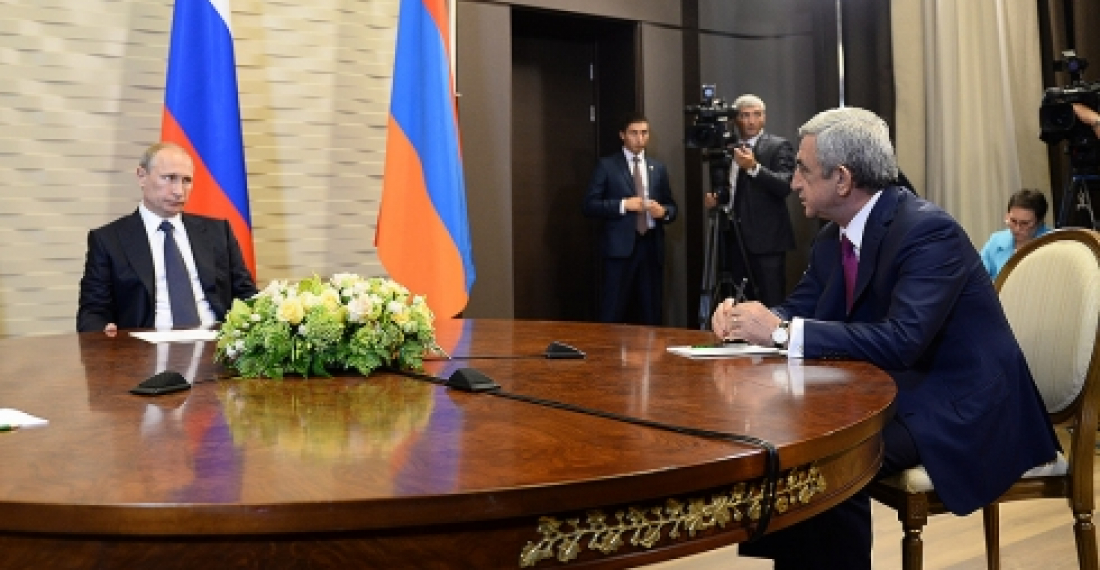The Armenian President Serzh Sargsyan on Sunday gave a long interview with ArmNews TV during which he commented about the meeting he had earlier with the Presidents of Azerbaijan and of Russia. Serzh Sargsyan said that President Putin wanted to have the meeting so that he could understand whether the parties wanted to resolve the conflict or not, and what were their expectations
The Armenian President stressed that there can be no military resolution to the Karabakh conflict and the Armenian side was always ready to participate in such meetings as long as they could provide a chance for discussing the peaceful resolution of the conflict.
Answering the question as to whether a new agreement was reached in Sochi on sustaining the ceasefire, Serzh Sargsyan said that the documents signed in 1994 and 1995 set legal obligations for both parties and they should be strictly fulfilled."The most effective way to cut on the number of incidents is to investigate them and develop an international mechanism to find those who stand behind them. Both the mediators and we are for the introduction of the mechanism but Azerbaijan rejects it", said the President.
Serzh Sargsyan said that the 2011 Kazan document, based on Madrid principles, still remains on the negotiation table. The Armenian President recalled that at the last minute Ilham Aliyev refused to sign the document in Kazan.
Commenting on the possibility of peacekeepers in Karabakh conflict zone, the Armenian President said that Madrid principles assume the presence of peacekeepers along the entire contact line, however their composition and authorities should be fixed by a Peace Agreement.
The Armenian President that at Sochi it had not been discussed when the next meeting between the Presidents of Armenia and Azerbaijan will take place, and no meeting is scheduled.
The full text of the interview of the Armenian President, in english, is available here or you can watch it in Armenian on you tube here
source: commonspace.eu with mediamax and president.am
photo: President Sargsyan with the Russian President in Sochi on 10 August 2014 (picture courtesy of the Prerss Service of the President of Armenia).







